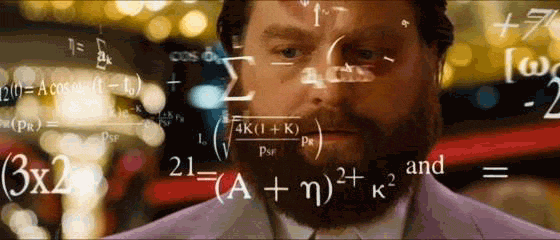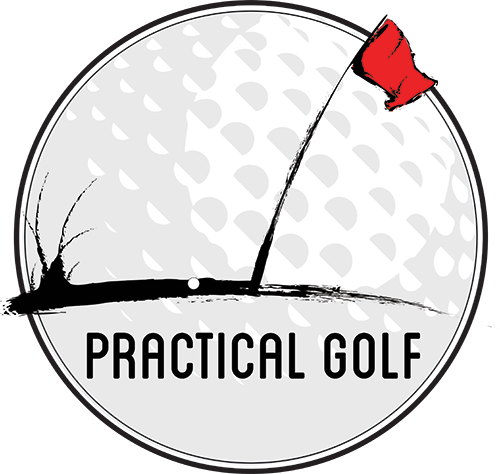you’re welcome, that’s what I was hoping to accomplish with this community - golfers learning from one another!
I think knowledge is great, but I never think of being “aggressive” of “conservative”. I try to do what @jon describes, to make the best choice for this shot, the choice that will yield the lowest score over the long term. My default is driver off the tee, unless there’s a specific reason not to hit driver, a narrowing of the fairway, cross-hazards, maybe terrain changes at driver distance. Driver isn’t necessarily “aggressive”, its simply the right choice, get as close to the hole as possible without taking on too much additional risk. I try to make the same evaluation for each shot, how do I make the best score (long-term) from right here. Sometimes the chip-out to the fairway IS the right choice to make the lowest score from “right here”, more aggressive choices will more often result in bigger problems and higher scores. I try not to let par or birdie get into the thought process.
I believe this is a part of the DECADE system, I know its part of the process described in Lowest Score Wins, both of which are rooted in the Strokes Gained analysis.
Tiger’s best scoring year was when he changed his strategy to avoid bogey. He actually made no more birdies than normal but made fewer bogies. So the moral of the story is, forget about birdie and think how not to make bogey.
well said, Dave - I have an article I’m working on right this very second exploring this idea more
My dream round that I have yet to achieve in about 40 years of playing this game is 18 pars in a round. I am a true believer that course management is probably the single biggest factor in keeping the big numbers off the card. Risk / reward should be considered on just about every shot that is played during a round. Sometimes hitting to the center of the green to set up an easy two putt par is preferential over taking a chance and shooting at a tight pin where a slight miss brings bogey or even double into play.
I am on a current streak of 75 straight rounds of making at least 1 birdie during each round. My longest streak is 87 rounds. I would gladly break the streak or trade both of those long streaks for just one bogey-free round.
My swings are much more inconsistent now than when I was 20 and also shorter on distance, but my scoring now is similar (and with room for improvement) because of this type of strategy. I was trying to birdie every hole when I was a kid and putting myself in tough spots. These days I play the ball thats in front of me and try to make the best decision based on what I know of my shot dispersion. Has led to a bunch of pars, a few bogeyed, and very very little more than that. Even if I snap hook into the trees on a Par 5 these days, I’m still confident that the worst I’ll do is a bogey, where as the younger me would have blown up trying to hit a bunch of hero shots to still get the birdie.
I love this perspective. A bogey free round is so impressive. I love watching MondayQ on twitter and his narration on what guys are doing in the qualifiers. Sometimes you get a guy with two days of bogey free golf and 62 for two days that miss the cut. It’s incredible some of the scores that are being posted by guys trying to get in on a Monday Q and are missing.
As a pessimist i always play percentages so I’d rather avoid a double than chase a birdie.
My best round was a double free round vs my lowest ever score. Just that sense that you worked your way around the course and did everything expected of you.
Biggest thing i took (in Jon’s 101 mistakes book) is not to compound an error with an error by chasing.
Golf is a long game, plenty of time to recover a round!
I play a lot of WOLF or skins and have come to the realization that good golf strategy is good golf strategy. I’ve lost a few times even with the lowest score because birdies win holes, and that made me get overly aggressive for awhile until I realized that anecdotal evidence on a couple of rounds isn’t supported by the larger data set… Pars don’t always win holes and they usually push, but bogeys lose holes. I’m better off playing the best strategic golf possible, making pars, and letting the birdies happen when they do.
The biggest thing I’ve been working on is putting speed. Stop trying to hole every putt. Get it close enough to 2 putt, and take the 3 putt or the grinding 3-4 footers off the table, and it’s much more relaxing!
I recently read Every Shot Counts, Broadie’s book about Strokes Gained. An interesting part of it dealt with putting strategy, and looked at Shotlink data from Tour pros. From short range, their putts averaged some distance past the hole. For longer putts, their distribution was clustered at just about hole distance. They’re not trying to run it 18 inches past coming from 30 feet out, they’re trying to stop it right at the hole. If you’re looking at 18 inches long, and miss that by 2 feet long, you’re looking at a 3-1/2 foot missable comeback. If you’re looking at the hole, and go 2 feet long, that finishing putt is a whole lot easier.
It’s funny… this tickled a nerve in my brain… I’m pretty sure the Simpsons have covered this exact topic. When Bart and Rod (? maybe Todd) are competing in mini golf, Rod talks about avoiding the high risk shot of going through the mechanical mouth and makes a hole in one going around the “hazard”. Or at least that’s how I remember it…
Realistically, it’s a simple concept. Put yourself into the best position possible to finish the hole.
In practice, it’s always a challenge for me. It’s harder to “play percentages” on one shot… and it’s really, really hard to separate results from process for me on the golf course.
I’m currently working hard to build a better process for myself (and understand my own strategy)… I think the DECADE system is probably a big help here, but one I don’t use… from there it’s actually trusting the process and implementing it!
The problem is, you still have to hit the golf shots… get on the green, make 2 putts… It’s more than just strategy, it’s actually putting all of it together and doing it on the course.
I think one way of looking at strategy is every shot you hit has a pattern where the ball is likely to finish up. It’s a fairly big pattern. Every spot you end up in has an average number of shots to get in the hole. If you draw out the map then you can figure out which club and target gives you the lowest likely score. That’s what you should hit. It’s very unlikely that the likelihood is below par for most of us.
I think one thing people struggle to understand is golf scores are discrete. You make birdie, par, bogey, etc. You can’t make 4.87 on a hole. So when you’re in a spot that averages 3.85 to hole out and you hit it to a spot that takes 2.80 strokes to hole out, that shot gained 0.05 of a stroke. Every 20 times you do that you gain a stroke, but it’s really hard to see that incrementally. When it stands out to me is when I play with someone a couple of shots better than me. I’m a bit further behind them, I miss it by a few yards more. They chip it to 2 feet and I chip it to 4 feet. It’s like trying to run uphill. You’re always falling behind. Over time it adds up. Conversely when I play someone I’m a bit better than I feel in control. Normal variance is helping me and that feels much more like running downhill. I just have to keep going and those averages are pushing me along.
Incidentally - IMO DECADE is much more actionable than LSW.

Sound advice, it’s just what I was seeing in my head while reading it. 
I agree with everything in the bulk of your post. I haven’t tried DECADE, so I can’t compare, but I found LSW really clear, especially the “shades of gray” method of shot selection.
Best user name on the site by the way
If I am the wolf, I am hitting driver and I am going to try and get it up near the green with the 2nd on a par 5
This is pretty standard per DECADE but it was enlightening to understand that pros are making tons of tap in birdies by getting near or on the green in 2
Much more likely to hit a 20 yd pitch stiff vs 100 wedge
We usually do birdies are double and occasionally play with hammers. Knowing that most birdies will be “luck” with the exception of two consecutive strong shots on a par 5 gives me a great opportunity to juice the bet when i know i have the best of it
Don’t sell yourself short. You’re in the running!
I’m not calling club choice aggressive or conservative necessarily, though it certainly can be. More lines than anything. Cutting corners. Carrying water knowing there’s a bailout if you miss it a little.
Risk/reward. There’s always a best shot you can hit. It’s not always the smartest shot you can hit.
Obviously risks and aggressive play can get you into trouble, but if you pick your spots and know your tendencies you can take advantage of certain situations more than others.
There’s more to it than, “This is a golf hole. I’m going to hit driver.”
When I tried this philosophy at the Par 3 course, they didn’t appreciate it.
